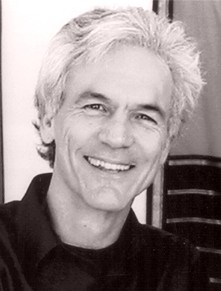A Quote by Joan Halifax
If compassion is so good for us, why don't we train our health care providers in compassion so that they can do what they're supposed to do, which is to transform suffering?
Related Quotes
If we take the time to look deeply, we see that understanding and compassion arise from suffering. Understanding is the understanding of suffering, and compassion is the kind of energy that can transform suffering. If suffering is not there, we have no means to cultivate our understanding and our compassion. This is something quite simple to see
The essence of love and compassion is understanding, the ability to recognize the physical, material, and psychological suffering of others, to put ourselves "inside the skin" of the other. We "go inside" their body, feelings, and mental formations, and witness for ourselves their suffering. Shallow observation as an outsider is not enough to see their suffering. We must become one with the subject of our observation. When we are in contact with another's suffering, a feeling of compassion is born in us. Compassion means, literally, "to suffer with."
In contrast, compassion manifests in us as the offering of kindness rather than withdrawal. Because compassion is a state of mind that is itself open, abundant and inclusive, it allows us to meet pain more directly. With direct seeing, we know that we are not alone in our suffering and that no one need feel alone when in pain. Seeing our oneness is the beginning of compassion, and it allows us to reach beyond aversion and separation.
To the extent that our experience of suffering reminds us of what everyone else also endures, it serves as a powerful inspiration to practice compassion and avoid causing others pain. And to the extent that suffering awakens our empathy and causes us to connect with others, it serves as the basis of compassion and love.
Hatred, jealousy and excessive attachment cause suffering and agitation. I feel compassion can help us overcome these disturbances and let us return to a calm state of mind. Compassion is not just being kind to your friend. That involves attachment because it is based on expectation. Compassion is when you do something good without any expectations - based on realizing that "the other person is also just like me".
When we endure our own tragedies or trials, most of us develop some empathy and compassion for others who are suffering. The trick is to keep that sense of compassion going throughout our daily lives, when we are likely to go on automatic pilot and move back into being judgmental, especially when times are tough.
Our compassion is the fruit of our spiritual lives; it actually arises spontaneously when formed by intention in our spiritual practice. Love and compassion are always the goods of the spiritual journey, and they are guided by divine wisdom, which then shapes compassion in the concrete situations of our existence.
The root of compassion is not empathy; that is kindness. Kindness is great, but it is not the ultimate compassion. Ultimate compassion relieves the suffering that comes from separateness. The suffering that comes from separateness is relieved only when you are fully present with another person, not when you are separately present.
The human being is that space in which the comprehensive compassion that pervades the universe from the very beginning now begins to surface --within consciousness. (As compared with the natural displays of compassion by other creatures that is not necessarily 'within consciousness. ') That's the only difference. We didn't create compassion, but it's flowing through us-or it could. The phase change that we're in seems, to me, to depend upon that comprehensive compassion unfurling in the human species.
The nectar of compassion is so wonderful. If you are committed to keeping it alive, then you are protected. What the other person says will not touch off the anger and irritation in you, because compassion is the real antidote to anger. Nothing can heal anger except compassion. That is why the practice of compassion is a very wonderful practice.

































